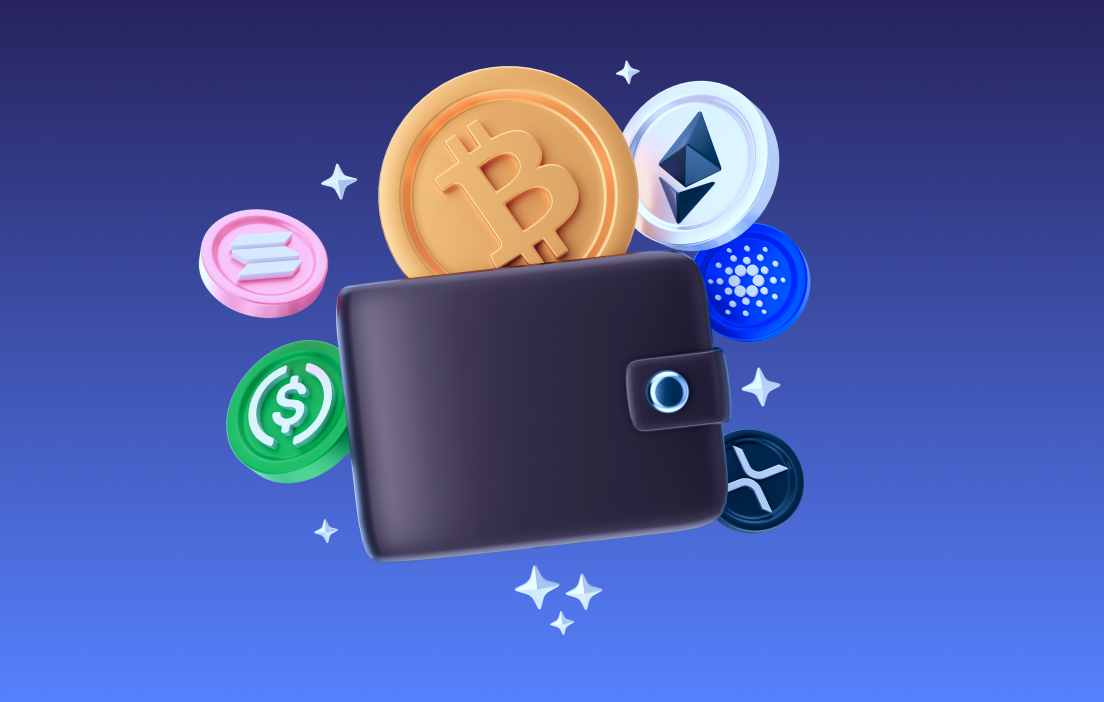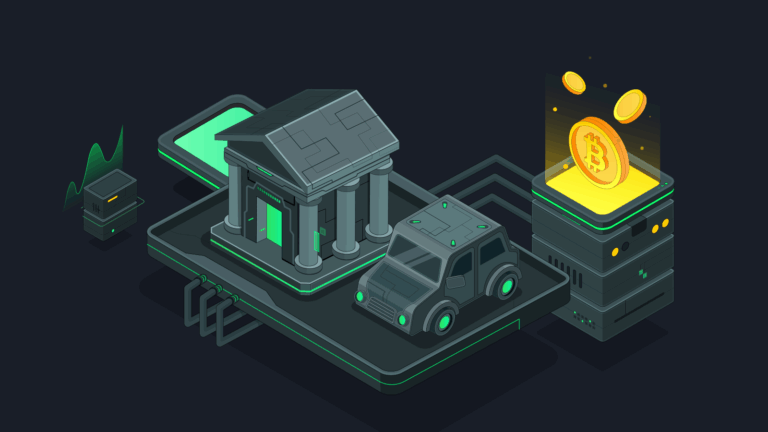
If you’re just starting with crypto, one of the first things you’ll hear is: “Don’t leave your coins on an exchange—get a wallet.” But what exactly is a crypto wallet? And how do you choose one that fits your needs?
In 2025, wallets have become much more user-friendly, but the principles behind them are still essential to understand—especially if you care about security and control.
What a Crypto Wallet Really Is
It’s not a place—it’s a key
A crypto wallet doesn’t actually “store” your crypto. Your coins live on the blockchain. What the wallet does is hold the private keys that prove your ownership of those coins.
Losing your keys = losing your crypto.
There are two key components:
- Public address: like your email—shareable, where people can send you crypto
- Private key: like your password—secret, used to access and sign transactions
Some wallets give you direct control of your keys. Others don’t. That’s the core difference.
Types of Crypto Wallets
1. Custodial wallets
These are wallets managed by a third party—usually an exchange or app. You don’t hold your private keys.
Examples: Binance, Coinbase, Kraken
Pros:
- Easy to use
- Great for beginners
- Recovery possible via email
Cons:
- You don’t control your assets
- If the platform is hacked or freezes your account—you could lose access
2. Non-custodial wallets
You control your keys—nobody else can access your funds without your seed phrase.
Examples: MetaMask, Trust Wallet, Rabby, Phantom, Keplr
Pros:
- Full control over your assets
- Works with DeFi and Web3 apps
- Privacy-focused
Cons:
- If you lose your seed phrase, there’s no recovery
- Interface can be more complex for beginners
3. Hardware wallets (cold storage)
These are physical devices that store your keys offline.
Examples: Ledger Nano, Trezor, Keystone
Pros:
- Maximum security
- Immune to online hacks
- Perfect for long-term holding
Cons:
- Cost ($70–$150)
- Slower for daily use
- Risk of physical loss
4. Mobile wallets
App-based, often non-custodial, sometimes with recovery features or biometrics.
Examples: Trust Wallet, Exodus, Rainbow, Argent
Best for: people who want to use crypto regularly, on the go.
Choosing the Right Wallet
Ask yourself:
- Are you holding large or small amounts?
- Do you plan to trade daily, or just hold long-term?
- Are you exploring DeFi or NFTs?
- Do you need access on your phone?
- Are you comfortable managing seed phrases?
Then match your profile:
| User Type | Recommended Wallet |
|---|---|
| Beginner | Coinbase (custodial) + Trust Wallet |
| Long-term holder | Ledger Nano X (hardware) |
| NFT user | MetaMask or Rainbow Wallet |
| DeFi explorer | Rabby or Keplr (multi-chain support) |
| Mobile-first user | Argent or Exodus |
Security Tips (2025 Edition)
Never share your seed phrase
No legit project or support team will ever ask for it. Anyone with your seed phrase can empty your wallet.
Use hardware wallets for serious funds
Especially if you’re storing more than a few thousand dollars.
Enable biometric + PIN protection
Many wallets offer Face ID or fingerprint unlock—use it. Add a PIN as backup.
Back up your recovery phrase offline
Write it down. Store it in a safe. Never store it in the cloud or in plain text on your phone.
Beware fake wallets
Only download from official websites or verified app stores. Fake wallet apps are one of the most common attack vectors.
What Happens If You Lose Access?
Custodial wallet?
You can usually reset your password via email and ID verification.
Non-custodial wallet?
If you lost your phone or uninstalled the app, but still have the seed phrase, you can restore the wallet on any compatible app.
If you lost both? Unfortunately, there’s no way to recover it. This is why backups matter.
Wallets and Web3
Crypto wallets now do more than just hold tokens. They’re your identity in Web3.
You can use them to:
- Log in to dApps (like Uniswap, Aave, OpenSea)
- Sign DAO proposals
- Receive on-chain credentials or NFTs
- Connect to DeFi protocols for lending, swapping, staking
This makes your wallet a passport—not just a money holder.
Multichain and the Future of Wallets
One wallet, many blockchains
Modern wallets support multiple networks: Ethereum, Solana, BNB Chain, Arbitrum, Base, Cosmos, and more.
Rabby, Keplr, and MetaMask with plugins now auto-detect networks and switch seamlessly.
Smart wallets
New wallets (like Argent, Safe, or UniPass) use account abstraction, allowing features like:
- 2FA on-chain
- Seedless recovery via social login or guardians
- Scheduled payments
- Gas fee abstraction
They aim to combine security with simplicity.
Final Word
Your crypto wallet is your gateway to the blockchain world. Whether you’re holding, trading, earning, or exploring NFTs, choosing the right wallet—and using it safely—is key to success.
In 2025, wallets are smarter, faster, and more powerful than ever. But with power comes responsibility. Don’t skip the basics.







